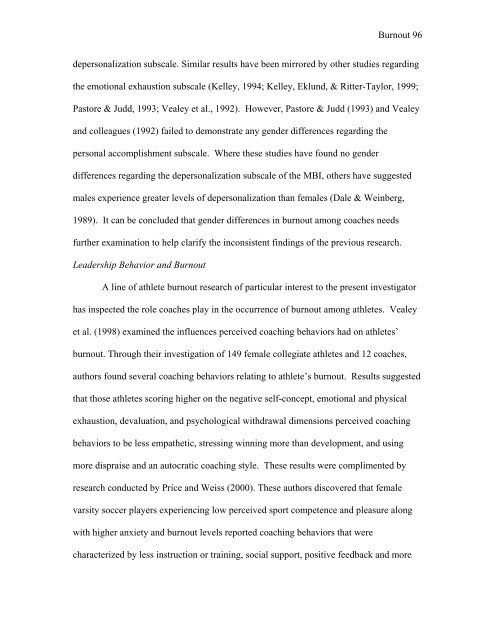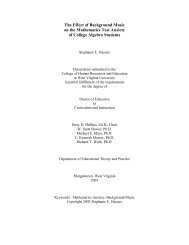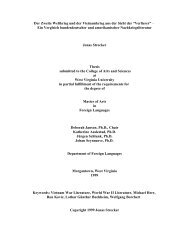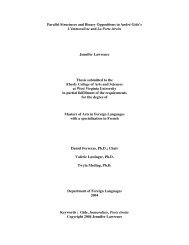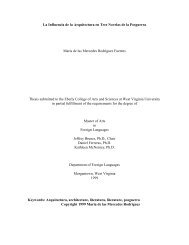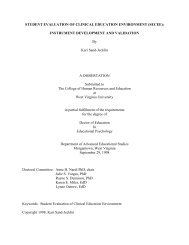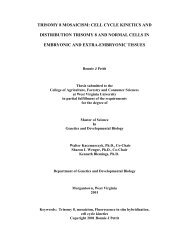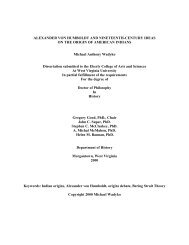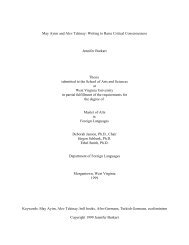Coach and Athlete Burnout - West Virginia University
Coach and Athlete Burnout - West Virginia University
Coach and Athlete Burnout - West Virginia University
Create successful ePaper yourself
Turn your PDF publications into a flip-book with our unique Google optimized e-Paper software.
<strong>Burnout</strong> 96<br />
depersonalization subscale. Similar results have been mirrored by other studies regarding<br />
the emotional exhaustion subscale (Kelley, 1994; Kelley, Eklund, & Ritter-Taylor, 1999;<br />
Pastore & Judd, 1993; Vealey et al., 1992). However, Pastore & Judd (1993) <strong>and</strong> Vealey<br />
<strong>and</strong> colleagues (1992) failed to demonstrate any gender differences regarding the<br />
personal accomplishment subscale. Where these studies have found no gender<br />
differences regarding the depersonalization subscale of the MBI, others have suggested<br />
males experience greater levels of depersonalization than females (Dale & Weinberg,<br />
1989). It can be concluded that gender differences in burnout among coaches needs<br />
further examination to help clarify the inconsistent findings of the previous research.<br />
Leadership Behavior <strong>and</strong> <strong>Burnout</strong><br />
A line of athlete burnout research of particular interest to the present investigator<br />
has inspected the role coaches play in the occurrence of burnout among athletes. Vealey<br />
et al. (1998) examined the influences perceived coaching behaviors had on athletes’<br />
burnout. Through their investigation of 149 female collegiate athletes <strong>and</strong> 12 coaches,<br />
authors found several coaching behaviors relating to athlete’s burnout. Results suggested<br />
that those athletes scoring higher on the negative self-concept, emotional <strong>and</strong> physical<br />
exhaustion, devaluation, <strong>and</strong> psychological withdrawal dimensions perceived coaching<br />
behaviors to be less empathetic, stressing winning more than development, <strong>and</strong> using<br />
more dispraise <strong>and</strong> an autocratic coaching style. These results were complimented by<br />
research conducted by Price <strong>and</strong> Weiss (2000). These authors discovered that female<br />
varsity soccer players experiencing low perceived sport competence <strong>and</strong> pleasure along<br />
with higher anxiety <strong>and</strong> burnout levels reported coaching behaviors that were<br />
characterized by less instruction or training, social support, positive feedback <strong>and</strong> more


